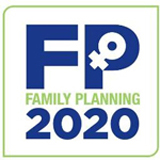
At the 2012 London Summit on Family Planning, the leaders of 150 countries, international agencies, civil society organizations, foundations, the research and development community, and the private sector endorsed the goal of expanding access to family planning information, services, and supplies to an additional 120 million women and girls in the world’s poorest countries by 2020.
Family Planning 2020 (FP2020) carries forward this momentum. Since its launch, more than 25,000 individuals and organizations have expressed interest in joining FP2020, and the constellation of stakeholders who are vested in improving women’s and girls’ lives continues to grow.
Preliminary data on international donor expenditures indicate an ins on family planning programs. Concrete examples of progress on the local, national, and regional levels are detailed throughout this report.
A rigorous measurement and evaluation agenda has been established as a means of guiding progress in delivering on the promise set forth in London. Over the past year
This report describes significant actions taken in the past year, including price reduction agreements, innovations in contraceptive technology, improvements in service delivery and commodities distribution models, and outreach to vulnerable and marginalized groups in the global effort to continue to expand access and choice for millions of women and girls.
The progress documented in this report demonstrates that we are moving forward program by program, clinic by clinic, and community by community—towards a future in